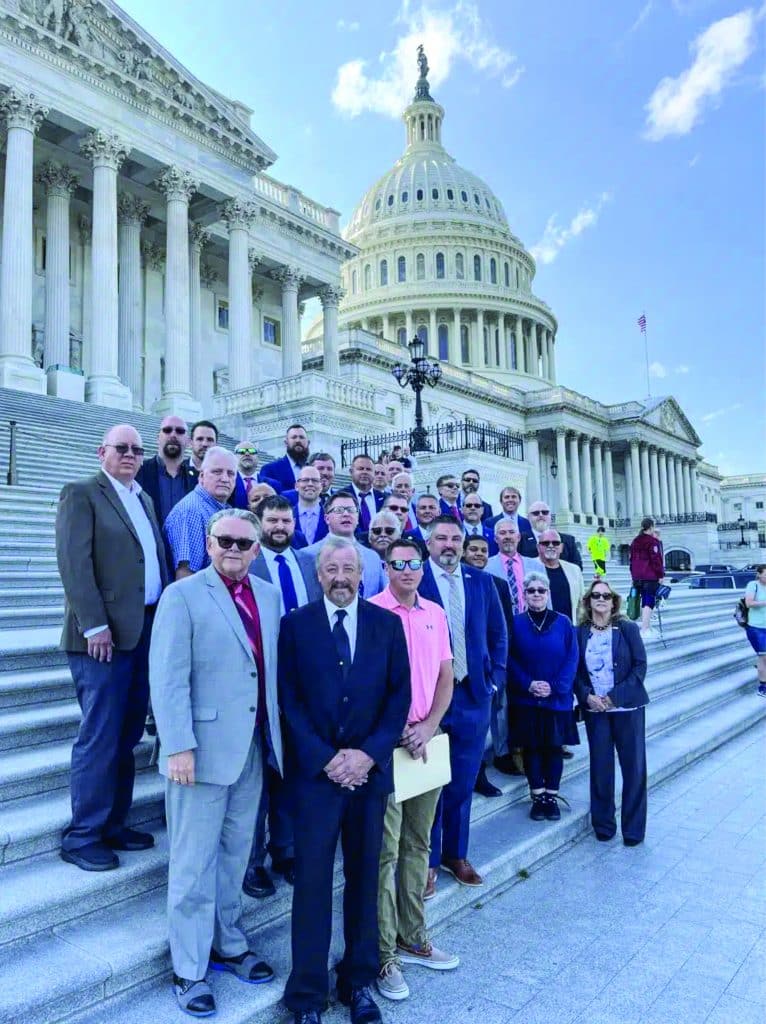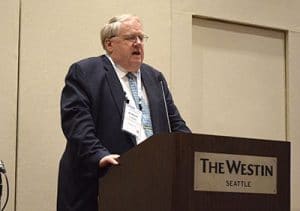As kids, the term “Hot Wheels” brought to mind good times playing with tricked-out toy cars and letting your imagination take it from there. As railroad professionals, this term goes from warm and fuzzy childhood memories to the gut-churning stuff of nightmares.
Railroaders all know that overheated bearings and wheels are one of the fastest ways to have a bad day or to make the news for the wrong reasons. In railroad training centers for all the major railroads, we are taught about the dangers of hot wheels/journals/bearings, but the silver lining on this issue is that the people managing the railroad have already figured it all out. We were all issued a temperature indicator stick (Tempilstik) and told that this very special crayon, combined with the railroad’s foolproof system of wayside defect detectors, would be adequate for us to make it through our 30-year careers and retire without having to worry about literally running the wheels off our train.
Turns out that this well-crafted illusion of security the railroads gave us on this topic was just as true as most of the other vetted-by-legal-counsel nonsense they fed us.
As most conductors find out the first time they get an alert from a hot box detector and the dispatcher tells them to ignore it, DDs aren’t regulated. They are in place for the convenience of the carrier and as a risk diversion for their bottom line. They are part of the safety equation but not tied to any laws or federal regulations. We all know that when you hit a hot box alert on an empty grain train, you’re going for a walk to investigate, but when you hit the same detector the next day on a container train with UPS, FedEx or Amazon shipments on board, it’s “nothing to be concerned about.”
The same smoke-and-mirrors treatment surrounds the security we have always gotten from our tempilstik. The logic behind this tool has always been that if doesn’t melt, you don’t have an issue, and it’s time to haul freight. Unfortunately, there is one big problem with this premise: It came from the railroad carriers.
When the time comes to walk your train and check for a hot wheel or journal, we all go through the same steps. We do the math, figuring out what car the axle in question is on. We mark our consist paperwork up to reflect where the 20 axles ahead and behind start and end. We grab our vest, red tag, and a marker, and then we dig through our grip to pull out the all-important tempilstik. Then we get off the engine to do our jobs.
Upon getting back to the axle in question, if the wax doesn’t melt, we report our “findings” to the engineer and dispatcher. Then we move on with our day, reassured that there is nothing wrong with our train. Maybe it’s because we are too pissed in that moment thinking about the fact this misdiagnosis from the DD is going to make us late getting home or that the pizza place next to the away-from-home hotel will be closed when the time comes to mark off, but we never take the time to ask ourselves if the tool your company gave you was adequate to test that wheel’s health for starters.
In June at the NTSB’s investigative hearing in East Palestine, Ohio, one of the experts on the panel made a reference to the fact that the integrity of rail bearings begins to break down at the temperature of 170 degrees Fahrenheit. Very soon after that statement was made, the representative on the panel from the Association of American Railroads (AAR) made the statement that this statistic is the reason that all railroad crews are equipped with a tempilstik specifically designed to melt at 169 degrees Fahrenheit.
SMART-TD was represented in that hearing, and there were certified conductors/SMART-TD members in attendance who heard this comment. Within a few minutes, there were cell phone images coming into these members from their coworkers of tempilstiks that were clearly labeled as being calibrated to melt at a temperature of 200 degrees Fahrenheit.
This 31-degree discrepancy means that obviously the AAR — the lobbying arm of the railroad companies — was less than accurate about their own safety apparatus in a federal hearing in which an oath was taken to represent the truth. That is not hard for any of us to believe. However, the larger miscarriage of justice and the larger concern to the safety of our train crews and communities like East Palestine that are dotted by rail lines all over the country is this:
The AAR’s acknowledgment and acceptance of this expert’s fact that 170 degrees Fahrenheit is the absolute threshold of when the mechanics of a rail wheel and its components are at risk of breaking down is utterly damning.
If this 170-degree threshold was a known fact to the railroads, how in good conscience have they been sending workers out to investigate the bearings armed with equipment they knew wasn’t physically capable of identifying the problem unless it was already 30 degrees past the point of no return?
SMART-TD has yet to receive an answer to this question. What is important is that this practice stops. In the two months since these comments were made at the NTSB hearing, it has come to SMART’s attention that Class I carriers have begun issuing new tempilstiks certified to melt at 169 degrees.
Some of the same members who helped us in the heat of the moment during the hearing have followed up by sending us evidence that they have been issued the new tempilstiks, and SMART-TD very much appreciates that.
On its face, this seems like a victory for railroaders and the safety of the communities our trains run through. Obviously, an apparatus designed to melt at 169 degrees is significantly better for all involved than the 200-degree version that we have had at our disposal. But let’s not downplay the fact that these rail carriers have acknowledged the scientific significance of 170 degrees, and that they knew they couldn’t hide behind issuing us safety apparatuses that were higher than the level their representative spoke to on the record in a public forum. The solution they came up with still is very questionable.
By the time a train stops in response to a hot wheel detector, and the conductor goes through all steps already mentioned, then walks back to the axle in question – maybe one mile, maybe two — what are the odds that a wheel that was 170 degrees at the time it passed the detector hasn’t cooled off to being below 169 degrees by the time that tempilstik is applied to it? They aren’t very good. In no way does it make sense that the railroad would invest in equipment that is rated to measure if the wheel is one barely significant degree away from the threshold of causing potential disasters.
If these railroad companies were at all serious about avoiding mainline derailments, they would invest in tempilstiks that can identify a problematic wheel substantially before the point of critical failure. SMART-TD doesn’t have any certified material engineers on staff capable of telling us what that number would be, but we do have a lot of collective years of experience as conductors and engineers and we know that, especially in cold weather, wheels that were at 170 when they passed a detector will be far cooler than 169 by the time we walk back. This is especially true in today’s era with trains over three miles long. It may very well take over an hour before a problematic wheel can be found and tested.
SMART-TD wants all its rail members to know that we aren’t satisfied with these 169-degree tempilstiks as a permanent solution. There are better, more-reliable forms of technology available to do this job in 2023 than a high-tech crayon. But as a jumping-off point, we are happy to see that most of America’s carriers are aware that we are on to the hoax of the 200-degree version, and we will be following this situation where it leads. We as railroad professionals are safer today than we were yesterday, but not as safe as we and our communities need to be tomorrow.
What our union and our Safety Committee need now is to find out if any of our members are still working for carriers operating with the 200-degree version. Science and common sense tell us that this equipment is not sufficient to keep you or your crew out of harm’s way. If you are still operating trains armed with one of these dangerously ineffective tempilstiks, please contact SMART-TD’s Government Affairs Department by emailing dbanks@smart-td.org.
We thank you for your help in this mission to keep our brothers and sisters safe. As always, we as a union need to be vigilant in looking out for one another.



 Montana’s oversight of railroad safety falls short at a time when volatile crude oil train traffic from the Bakken region, already high, is only expected to increase, a new audit found.
Montana’s oversight of railroad safety falls short at a time when volatile crude oil train traffic from the Bakken region, already high, is only expected to increase, a new audit found.